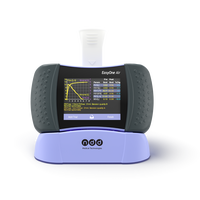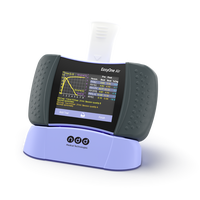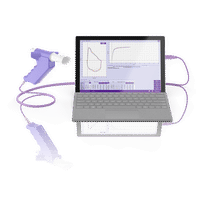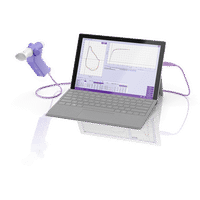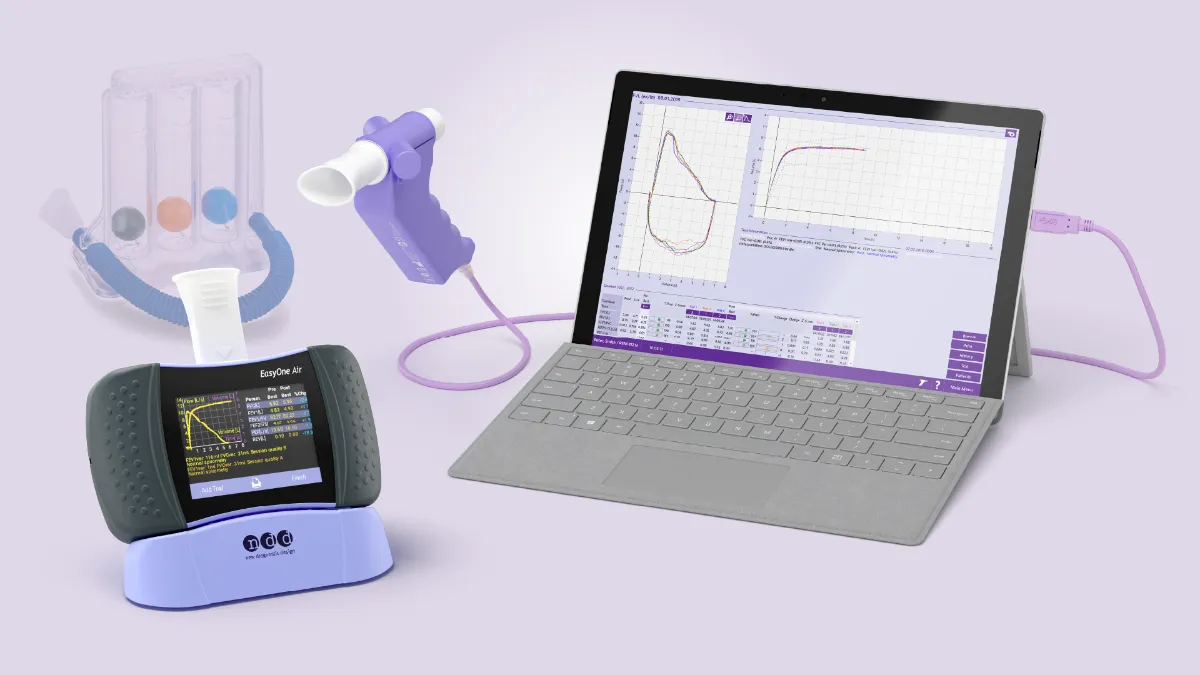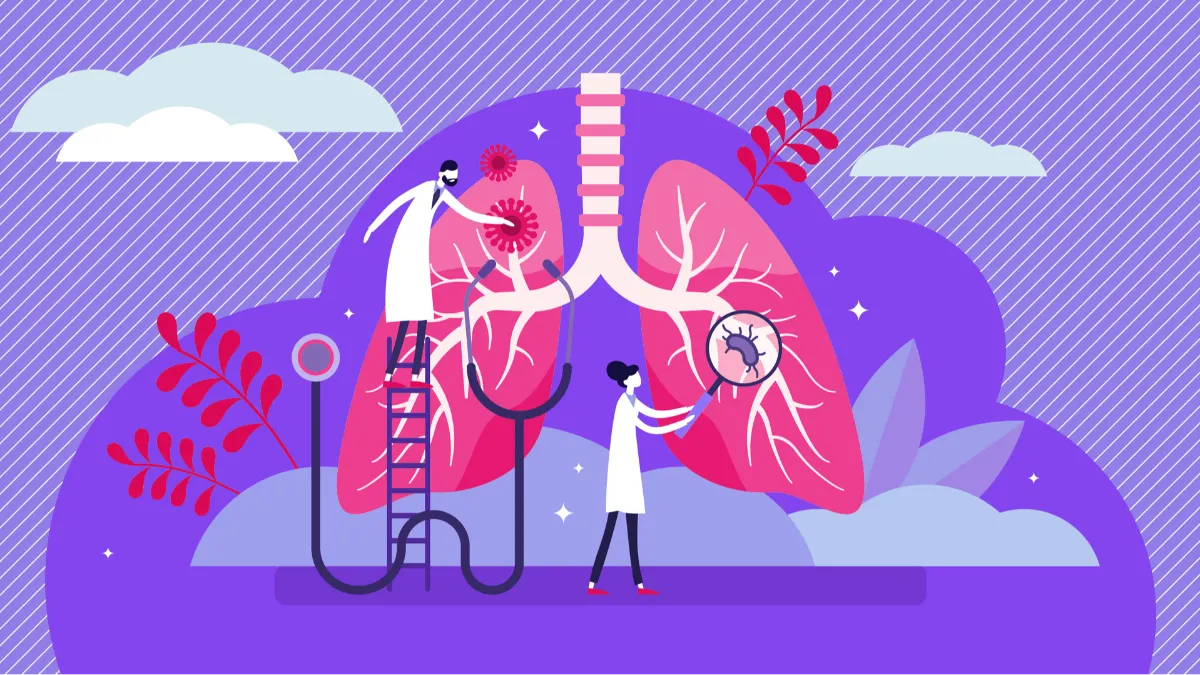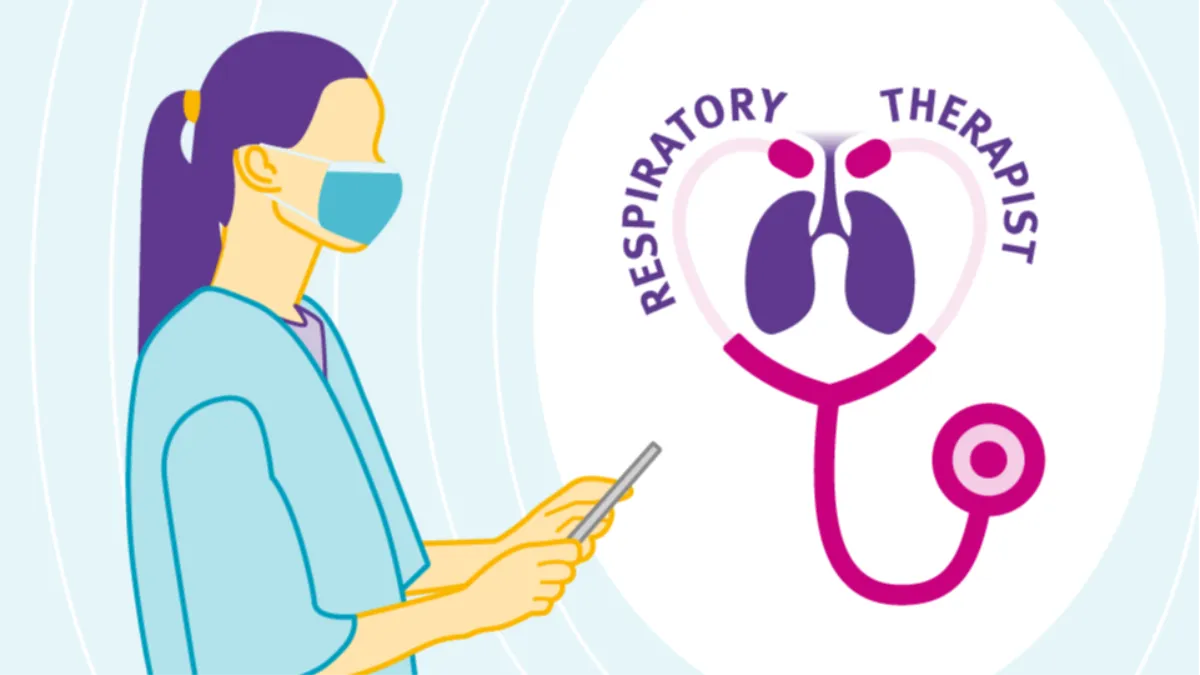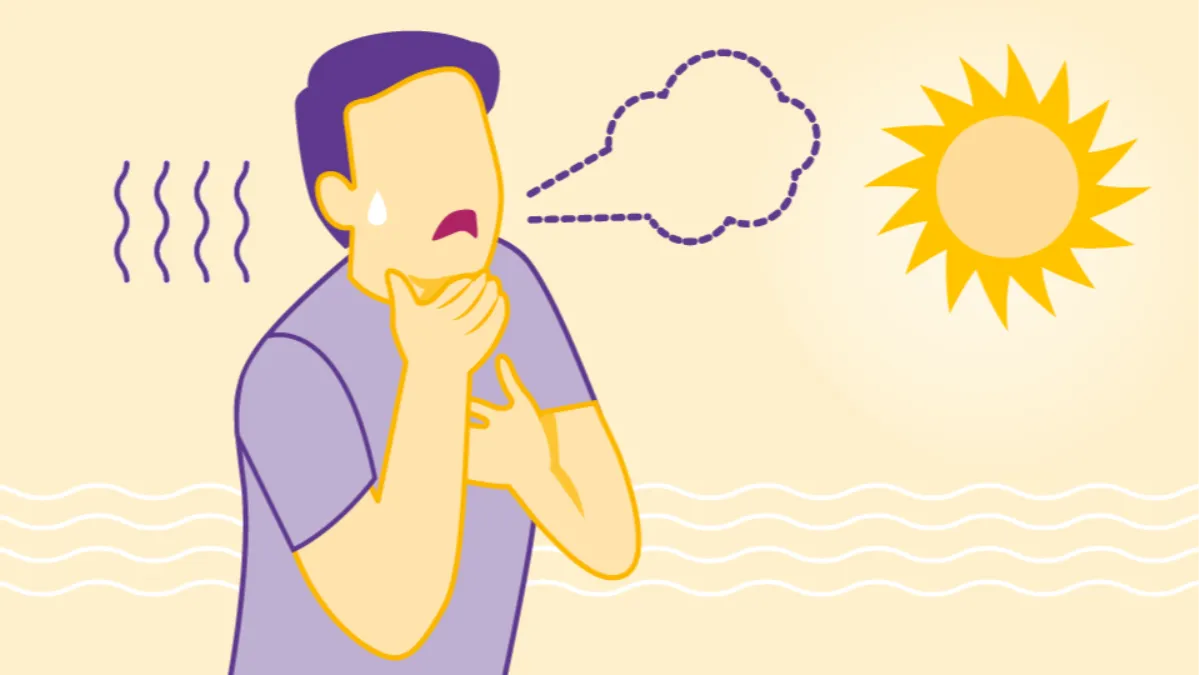Top 5 tips for managing lung disease during the summer months
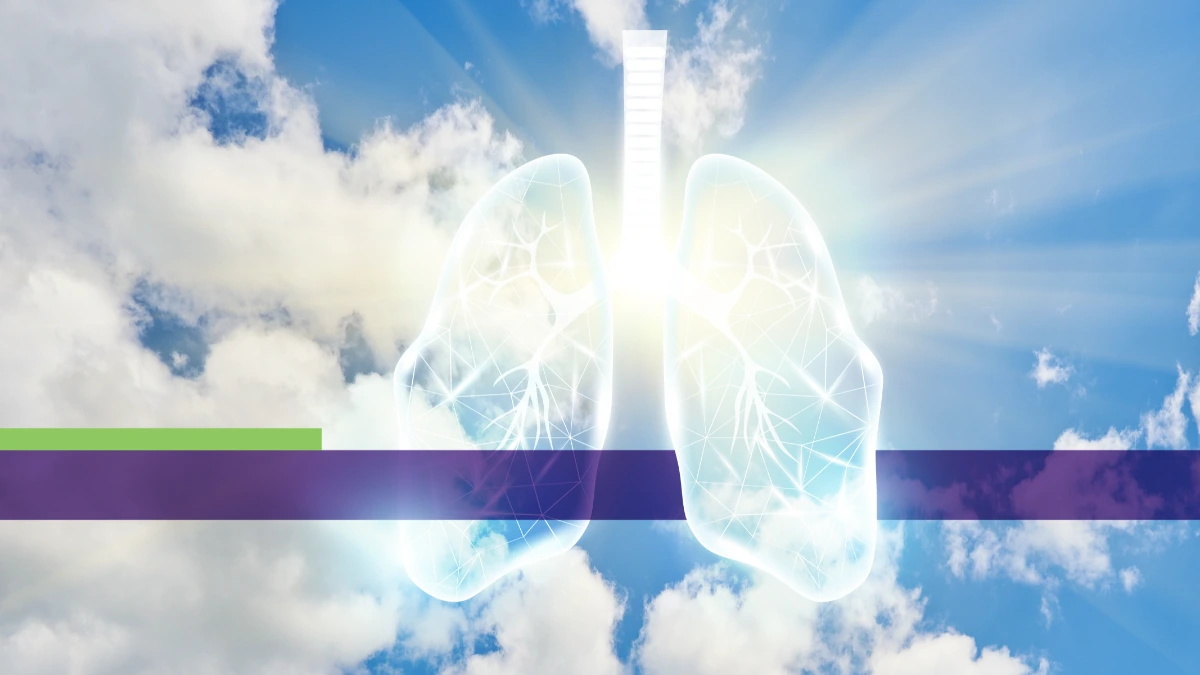
For many, summer is the most exciting time of year: Kids are out of school, the weather is warmer, the days are longer, pools are open, and it’s much easier to spend time outdoors. However, for individuals living with lung diseases like asthma, COPD, or cystic fibrosis, the season brings challenges. Higher temperatures, increased humidity, seasonal allergies, and poor air quality can worsen symptoms and impact quality of life.
Fortunately, there are ways to minimize these risks. Below, you’ll find evidence-based tips to help you navigate the summer months while still enjoying the season.
Tip 1: Stay hydrated #
Summer heat can lead to dehydration, causing symptoms like fatigue, dizziness, and confusion – ultimately leading to millions of unexpected hospital visits in America each summer.1 This is because the airways rely on adequate hydration. In fact, Marshall et al. discovered that drinking water is more effective than inhaling saline solutions for rehydration, thus restoring water to the airways.2 When not properly hydrated, the airways cannot rid themselves of mucus, which can worsen pulmonary symptoms and function in people with lung diseases and even those without.
In those with asthma, especially those with exercise-induced bronchoconstriction, the airways are at increased risks of the effects of heat and dehydration.
- Carry a water bottle.
- Eat water-rich foods (e.g., fruits, vegetables).
- Avoid excessive caffeine and alcohol.
- Rehydrate with fluids that contain electrolytes when sweating excessively.
Tip 2: Monitor air quality #
Poor air quality—exacerbated by ongoing Canadian wildfires and rising pollution levels—continues to pose serious risks to lung health. In recent years, and again this summer, smoke from wildfires in Canada has drifted across the border, affecting air quality across large parts of North America, including the eastern United States.
As climate change worsens, wildfires are expected to increase in both frequency and intensity, contributing to higher levels of particulate matter. Ground-level ozone and particulate matter can trigger conditions like COPD and asthma causing increased rates of exacerbations.
But knowledge is power, and in this case, being knowledgeable about what causes poor air quality and how to minimize exposure provides an opportunity for people to protect themselves. Monitoring air quality using resources like AirNow.Gov or weather apps helps in minimizing exposure by providing interactive maps that allow users to filter by ozone and particulate matter. Indoor air purifiers and face masks can also be useful when outdoor air quality is poor.
Practical tips:
- Stay indoors when the air quality is poor outside.
- Use a high-quality HEPA air purifier3 at home as indoor air can sometimes be worse than outdoor air.4
- Wear a face mask outside when air quality is poor. An N95 is preferred, but a cloth mask is still better than nothing.5
Tip 3: Keep cool #
As mentioned above, hotter temperatures and more humidity can cause people to become dehydrated more quickly, especially when exercising. Heat waves have been found to significantly increase the risk of illness and death in people with chronic lung disease.6
Here are a few strategies, along with staying hydrated, to help you stay cool this summer:
- Use air conditioning or fans — but be sure to take a cold shower or bath if your body temperature is too hot.
- Close window blinds and curtains to keep your residence cooler.
- Wear lightweight, breathable clothing.
- Schedule outdoor activities during cooler parts of the day (morning/evening).
Tip 4: Manage allergy and asthma symptoms #
Allergens, including pollen and pollutants, can trigger symptoms in individuals with allergies, asthma, and COPD. This is just one reason why early diagnoses are so important. Monitoring pollen counts with resources like the National Allergy Bureau™ can help.
If you experience seasonal allergies or have asthma, it’s best of course to avoid being exposed to those allergens. But this is not always feasible, so below are few tips to minimize your exposure if you are outdoors when allergens are high:
- Keep windows closed during high pollen days.
- Shower and change clothes after being outdoors.
- Use hypoallergenic bedding and clean regularly.
EasyOne spirometry machines - tailored solutions for every practice.
Explore our spirometry machines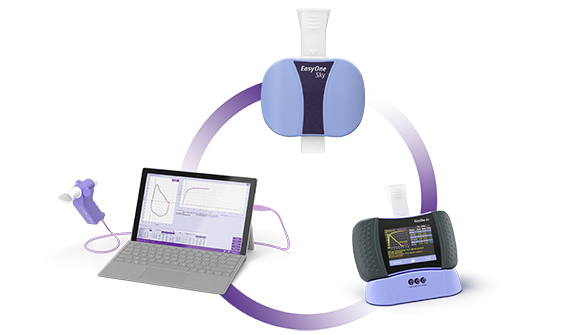
Tip 5: Follow the plan #
Self-management care plans have been shown to have many benefits in people with lung diseases including COPD and asthma: Better control, fewer exacerbations and hospital admissions, and improved quality of life.7
Over the course of the summer months, a self-management care plan can serve as the tool that empowers people with lung diseases to best enjoy this time of year. Here are a few additional ideas for how to maximize the benefits of having a self-management care plan:
- Adherence to the plan provided by the physician is priority! If a plan is not already in place, it’s best to get one as soon as possible.
- Work with your physician to account for specific challenges in during the summer, such as the ones listed in this blog.
- Provide a copy of the care plan to your close friends and family so they are aware of specifics and can assist if any issues arise.
Conclusion #
While summer has triggers that can exacerbate symptoms in people with lung diseases, proactive measures can help minimize these and reduce associated risks. Incorporating these tips into your care plan and consulting with your physician will ensure you’re prepared to make the most of the summer months.
Sun S, Weinberger KR, Nori-Sarma A, et al. Ambient heat and risks of emergency department visits among adults in the United States: time stratified case crossover study. BMJ. 2021;375:e065653. doi:10.1136/bmj-2021-065653 ↩︎
Marshall H, Gibson OR, Romer LM, Illidi C, Hull JH, Kippelen P. Systemic but not local rehydration restores dehydration-induced changes in pulmonary function in healthy adults. J Appl Physiol. 2021;130(3):517-527. doi:10.1152/japplphysiol.00311.2020 ↩︎
Assessing effectiveness of air purifiers (HEPA) for controlling indoor particulate pollution - PMC. Accessed June 7, 2024. https://www.ncbi.nlm.nih.gov/pmc/articles/PMC8449022/ ↩︎
Mannan M, Al-Ghamdi SG. Indoor Air Quality in Buildings: A Comprehensive Review on the Factors Influencing Air Pollution in Residential and Commercial Structure. Int J Environ Res Public Health. 2021;18(6):3276. doi:10.3390/ijerph18063276 ↩︎
Wilson RM. Face masks’ effectiveness against severe air pollution. Published online October 4, 2021. doi:10.1063/PT.6.1.20211004a ↩︎
Witt C, Schubert AJ, Jehn M, et al. The Effects of Climate Change on Patients With Chronic Lung Disease. Dtsch Ärztebl Int. 2015;112(51-52):878-883. doi:10.3238/arztebl.2015.0878 ↩︎
Pinnock H. Supported self-management for asthma. Breathe Sheff Engl. 2015;11(2):98-109. doi:10.1183/20734735.015614
Khan A, Dickens AP, Adab P, Jordan RE. Self-management behaviour and support among primary care COPD patients: cross-sectional analysis of data from the Birmingham Chronic Obstructive Pulmonary Disease Cohort. NPJ Prim Care Respir Med. 2017;27:46. doi:10.1038/s41533-017-0046-6 ↩︎
Written by

Tré LaRosa
Tré LaRosa is a consultant, scientist, and writer in the Washington, DC area with extensive experience working in research (basic, translational, and clinical) and on patient-reported outcomes. He has also written extensively on neuroscience, pulmonology, and respiratory conditions, including from the patient perspective. He enjoys learning, reading, writing, spending time outdoors, and telling everybody about his mini golden retriever, Duncan.

